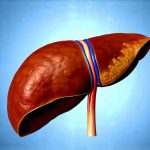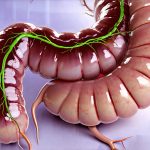Our bodies are constantly exposed to toxins from various sources – environmental pollutants, processed foods, metabolic byproducts, and even natural compounds in excess. While our inherent detoxification systems work tirelessly to neutralize and eliminate these substances, they can become overwhelmed with the modern burden of toxicity. Supporting these pathways is crucial for overall health and wellbeing, and increasingly, research highlights the powerful role that probiotics—live microorganisms conferring a health benefit on the host—can play in optimizing this process. The gut microbiome, where most probiotic action occurs, isn’t simply a digestive aid; it’s deeply intertwined with liver function, detoxification mechanisms, and elimination processes, forming a complex ecosystem that profoundly impacts systemic health.
The conventional understanding of ‘detoxification’ often evokes images of restrictive diets or extreme cleanses. However, true detoxification is an inherent biological process involving several organs working in concert. The liver stands as the primary detoxifying organ, filtering blood and transforming toxins into less harmful substances. These are then processed by the kidneys for elimination through urine, or by the gut for removal via feces. A compromised digestive system can place a significant burden on these pathways, increasing systemic toxicity. Probiotics offer a fascinating avenue to support not just gut health, but also the efficiency of these critical detoxification systems, and understanding this connection is key to proactive wellbeing. Considering the impact of antibiotics on gut health can further inform these strategies.
The Gut-Liver Axis & Microbial Influence on Detoxification
The relationship between the gut microbiome and liver function is now recognized as the gut-liver axis, a bidirectional communication network influencing both organ systems. A healthy gut barrier prevents “leaky gut,” where undigested food particles, bacterial toxins (like lipopolysaccharide or LPS), and other harmful substances can enter the bloodstream, triggering an immune response and placing increased stress on the liver. Probiotics can bolster this gut barrier integrity by strengthening tight junctions between intestinal cells, reducing permeability, and minimizing systemic inflammation. This reduced burden allows the liver to focus on its core detoxification functions rather than constantly battling inflammatory responses initiated from a compromised gut.
Furthermore, certain probiotic strains can directly influence liver function through several mechanisms. Some species modulate bile acid metabolism – bile acids being crucial for fat digestion and also acting as signaling molecules influencing metabolic processes. Others exhibit the ability to reduce hepatic steatosis (fatty liver disease) by impacting lipid metabolism and reducing inflammation within the liver itself. The microbiome’s role in metabolizing toxins is also significant; bacteria can transform certain harmful compounds into less toxic forms, easing the load on the liver’s detoxification enzymes. This metabolic capacity varies greatly between individuals based on their unique gut microbial composition. Understanding irregular eating habits and their impact is also important for optimizing these processes.
The influence extends beyond just mitigating damage; probiotics actively support Phase I and Phase II detoxification pathways within the liver. Phase I involves converting toxins into intermediate metabolites, often making them more reactive. Phase II then conjugates these metabolites with other molecules to render them water-soluble for elimination. Specific probiotic strains can upregulate enzymes involved in both phases, enhancing the overall efficiency of this process. This modulation isn’t simply about boosting enzyme activity; it’s about restoring balance and optimizing the detoxification cascade.
Probiotics & Phase I/II Detoxification Enzymes
The liver utilizes a complex array of enzymes to carry out its detoxification tasks. Cytochrome P450 (CYP) enzymes are central to Phase I detoxification, responsible for initial toxin modification. While some probiotics can enhance CYP enzyme activity, it’s important to note that excessive activation isn’t always desirable—it can sometimes lead to the generation of more reactive intermediates. The key lies in balanced modulation. Specific strains like certain Lactobacillus and Bifidobacterium species have been shown to influence CYP enzyme expression, promoting efficient Phase I detoxification without overwhelming the system.
Phase II detoxification relies on conjugation enzymes such as glutathione S-transferases (GSTs), UDP-glucuronosyltransferases (UGTs) and sulfotransferases (SULTs). These enzymes attach molecules like glutathione, glucuronic acid, or sulfate to toxins, making them water-soluble for excretion. Probiotics can indirectly support Phase II by increasing the availability of essential nutrients required for these enzymatic reactions. For example, glutathione is a critical antioxidant and detoxifier, and its production can be enhanced through probiotic modulation of gut health and nutrient absorption.
It’s crucial to understand that probiotics don’t work in isolation. Their effectiveness depends on factors like individual microbiome composition, diet, lifestyle, and the specific strain used. A holistic approach—combining probiotic supplementation with a nutrient-rich diet supporting liver function (such as cruciferous vegetables for sulfur compounds) and minimizing toxin exposure—is far more effective than relying solely on probiotics. The benefits of probiotics are most apparent when integrated into a healthy lifestyle.
Probiotics & Bile Acid Metabolism
Bile acids are synthesized in the liver from cholesterol and play a crucial role in fat digestion, absorption of fat-soluble vitamins, and regulating metabolic processes. The gut microbiome significantly influences bile acid metabolism through several mechanisms. Certain bacteria can deconjugate bile acids – separating them into primary and secondary bile acids – which alters their solubility and reabsorption rates. This impacts the enterohepatic circulation—the recycling of bile acids between the liver and intestines.
Probiotics can modulate this process, influencing the composition of bile acid pool and impacting cholesterol metabolism. Some strains promote deconjugation, leading to reduced absorption and potentially lowering cholesterol levels. Others may enhance bile acid signaling, affecting glucose metabolism and energy homeostasis. A healthy balance in bile acid metabolism is vital for optimal liver function and overall metabolic health.
Dysbiosis—an imbalance in the gut microbiome—can disrupt bile acid metabolism, contributing to conditions like small intestinal bacterial overgrowth (SIBO) and increased inflammation. Probiotics can help restore a balanced microbial composition, improving bile acid handling and reducing associated symptoms. The interplay between probiotics, bile acids, and liver function is complex but represents a powerful target for supporting detoxification and metabolic health. Considering meal frequency can also help optimize digestive processes.
Improving Elimination Through Gut Microbiome Modulation
Detoxification isn’t solely about neutralizing toxins; it’s equally about effectively eliminating them from the body. The gut plays a central role in this elimination process, primarily through fecal excretion. A healthy gut microbiome supports regular bowel movements and prevents constipation—a major roadblock to detoxification. Probiotics can improve gut motility by producing short-chain fatty acids (SCFAs), which stimulate peristalsis – the wave-like muscle contractions that move waste through the digestive tract.
Furthermore, probiotics can enhance the elimination of toxins by binding to them in the gut. Certain strains possess the ability to bind to heavy metals, pesticides, and other harmful substances, preventing their reabsorption into the bloodstream. This binding action facilitates their removal via feces. Fiber intake is also crucial; it provides food for beneficial bacteria, promoting SCFA production and supporting regular bowel movements.
Supporting kidney function is another aspect of elimination. The gut microbiome influences kidney health through several mechanisms, including modulation of inflammation and regulation of fluid balance. Probiotics can help reduce the formation of oxalate crystals—a common cause of kidney stones—by degrading oxalate in the gut. Ultimately, a healthy gut microbiome fosters efficient detoxification and elimination, minimizing the buildup of toxins within the body. Additionally, understanding how seasonal allergies can impact digestive health is crucial for holistic wellbeing. The effects of high altitudes on digestion are also worth considering.
It’s important to remember that this information is for educational purposes only and should not be interpreted as medical advice. Always consult with a qualified healthcare professional before making any changes to your diet or supplement regimen.


















